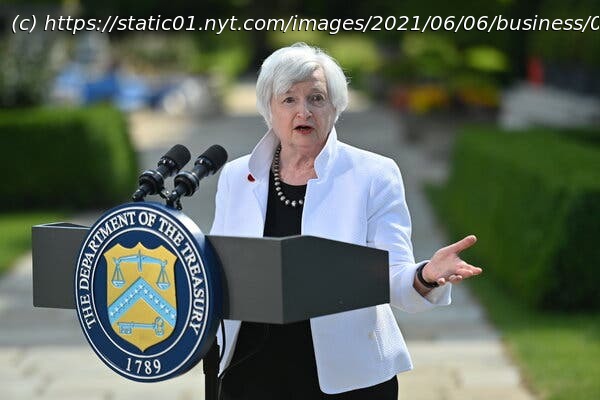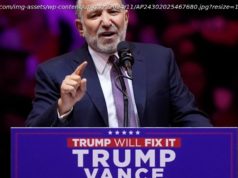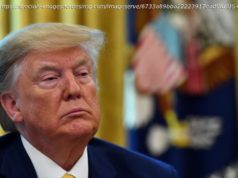The Treasury secretary worked with finance ministers from the G7 to win support for a global minimum tax. But selling the idea to Republican lawmakers will not be easy.
Treasury Secretary Janet L. Yellen secured a landmark international tax agreement over the weekend, one that has eluded the United States for nearly a decade. But with a narrowly divided Congress and resistance from Republicans and business groups mounting, closing the deal at home may be an even bigger challenge. The Biden administration is counting on more than $3 trillion in tax increases on corporations and wealthy Americans to help pay for its ambitious jobs and infrastructure proposals. Republicans have expressed opposition to any rise in taxes and have warned that President Biden’s big spending plans are fueling inflation and will deter business investment. Business groups have complained that higher taxes pose a threat to the economic recovery and will put American companies at a competitive disadvantage. Persuading members of the Group of 7 advanced economies to agree on Saturday to a global minimum tax of at least 15 percent was intended to help the Biden administration win support for its U.S. tax increases. If enacted, the global minimum tax would require that companies pay at least a 15 percent tax on income, regardless of where they are based, making it less advantageous to relocate operations to countries with lower tax rates. In an interview on Sunday, Ms. Yellen acknowledged the legislative challenge ahead and defended the Biden administration’s plans to raise taxes on corporations. She stood behind Mr. Biden’s proposal to raise the corporate tax rate in the United States to 28 percent from 21 percent. “We think it’s a fair way to collect revenues,” Ms. Yellen said on her flight back to the United States from London after attending two days of meetings with G7 finance ministers. “I honestly don’t think there’s going to be a significant impact on corporate investment.” Ms. Yellen played down the relationship between tax rates and business spending, arguing that the $1.5 trillion tax cuts that Republicans passed in 2017 did little to lift American investment. She said that the changes to the international tax code would ultimately be beneficial to U.S. firms and that even those who face higher taxes, such as Amazon, Facebook and Google, would gain from the additional certainty about their tax bills. But the fate of Mr. Biden’s proposals is not certain, and Ms. Yellen now faces the task of convincing lawmakers that large tax and spending increases will not hinder the economic recovery. Mr. Biden has been negotiating with Republican lawmakers and has expressed a willingness to narrow the scope of his tax and spending plans to rebuild the nation’s roads and bridges.






